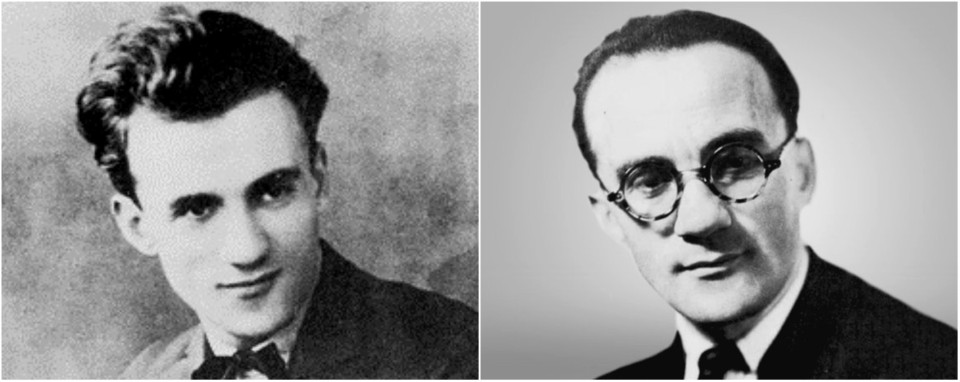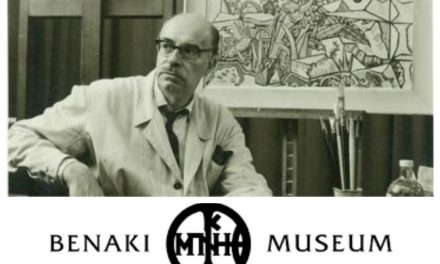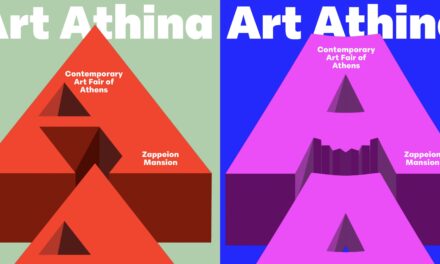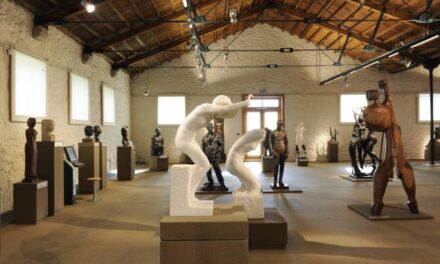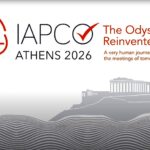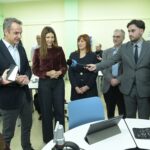Nikos Skalkottas (1904-1949) was one of the most prominent Greek symphonic music composers of the 20th century; virtually unknown during his lifetime, he gained posthumous recognition in Greece and abroad for his daring, original style. Almost 68 years after the composer’s untimely death, two musical works, previously considered lost, will be performed for the first time before a Greek audience, at the Megaron Athens Concert Hall, on February 13 2018. On this occasion, we present a brief overview of his life and works.
Skalkottas came from a musical family and studied violin since the age of five, while at the age of 14 he graduated Athens Conservatoire with honours. In 1921 he went to Berlin on a scholarship, to continue his training on a higher level at the Prussian Academy of Arts, but two years later he decided to give up his career as a violinist and become a composer, studying under acclaimed composers like Robert Kahn and Kurt Weill. Between 1927 and 1932 he took part at the Master Class in Composition at the Academy of Arts, under the direction of Arnold Schoenberg, an Austrian modernist composer and music theorist, leader of the Second Viennese School, who held his young student to very high esteem and became a major influence for his artistic development.
5 Greek Dances (1931-1936) – Archi dell’Orchestra Filarmonica di Torino
Financial problems along with misfortunes in his personal life forced him to live Berlin, initially with the intent of returning, which he never actually managed. He left behind many of his possessions, including a large number of manuscripts, many of which were lost or destroyed. In Athens, despite his previous successes, Skalkottas faced harsh criticism and even enmity by the closed circle of composers dominating Greek musical scene during the pre-War era (the so-called “National School”). His experimental, atonal compositions were deemed “incomprehensible”; although he was extremely prolific, very few of his works were ever performed by orchestras while he was alive.
Piano Concerto No.3 for piano and ten wind instruments (1939) – English Bach Festival Ensemble
He sought other means of funding through scholarships or paid work as an orchestral player, but he was quickly disillusioned with the state of musical affairs in Athens at the time. Until his death he earned a living as a back-desk violinist for the National Opera and other orchestras. In the mid-1930s he worked at the Folk Music Archive in Athens, and did transcriptions of Greek folk songs into Western-music scores. In 1949, at the age of 45, he died of complications related to common hernia. His talent was more widely recognised due to the efforts of the “Society of Skalkottas’ Friends” which was founded after his death by a group of friends and admirers. British musician and essayist Hans Keller, in his writings on music, includes Skalkottas among “our century’s masters of symphonic thought”.
Skalkottas’ work as composer, according to John G. Papaioannou (musician, musicologist and founding member of the “Society of Skalkottas’ Friends”), can be categorised into three periods: the first one (1927-1938), which includes his time in Germany and first years after his return to Greece, is marked by the prevalence of the 12-tone technique, a method of musical composition devised by Schoenberg, usually producing atonal music – there are however exceptions, as in his later famous “36 Greek dances”, which creatively incorporate elements of traditional Greek music. The second period (1938-1945) is distinguished by a turn towards a more epic style in his often long compositions while the last period (1945-1949) is distinguished by more dramatic, solemn compositions, and a more frequent use of tonal harmony.
Classical Symphony in A (1947) – ERT National Symphony Orchestra
Musicologist Ioannis Tselikas retrieved two of the composer’s missing manuscripts at the library of State University of New York in Buffalo. The two pieces, a Suite for piano and small orchestra and a Concerto for violin, piano and orchestra, had been presented by the Skalottas in Berlin, in 1930 and had been until then presumed lost. The music sheets were purchased by the “Friends of Music Society”, an association for the promotion of music in Greece, responsible for the foundation of the Athens Concert Hall. The two works will be performed for the first time in Greece, at the Athens Concert Hall, along with works by Skalkottas’s teachers Paul Juon and Kurt Weill, and Yannis Constantinidis (a Greek composer who studied in Berlin along with Skalkottas), in order to familiarise the audience with the trends of interwar Berlin. The event also marks the culmination of events celebrating 20 years since the inauguration of the concert hall’s Great Music Library. It must also be noted that the great composer’s memory is often honoured by the Athens Concert Hall, which counts Nikos Skalkottas Hall among its central venues.
For more info on the show (in Greek): http://www.megaron.gr/default.asp?pid=5&la=1&evID=3986
Watch The Return of Ulysses, a short film about Nikos Skalkottas (english subtitles)
Edited by Nefeli Mosaidi

